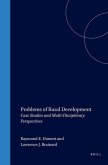A correct perspective on the origins and development of pan-Islam in British India had eluded writers for years. The author treats the subject comprehensively and highlights links between pan-Islam and nationalist movements in the nineteenth and twentieth centuries. In focus is the Khilafat movement (1918-1924) which, with its distinct religio-political dynamics, aimed at saving Ottoman Turkey from dismemberment as well as securing self-government for India. Extensively utilizing a variety of archival and other source materials, the author unfolds the fascinating story of how, in concert with secular forces, the pan-Islamic appeal was mobilized for political gains in the broader context of the British policy towards Turkey and India. The book also examines the gradual transition of Muslim politics from pan-Islam to territorial nationalism, especially after the Turks abolished the caliphate and the Indians plunged back into communal strife.
Hinweis: Dieser Artikel kann nur an eine deutsche Lieferadresse ausgeliefert werden.
Hinweis: Dieser Artikel kann nur an eine deutsche Lieferadresse ausgeliefert werden.








